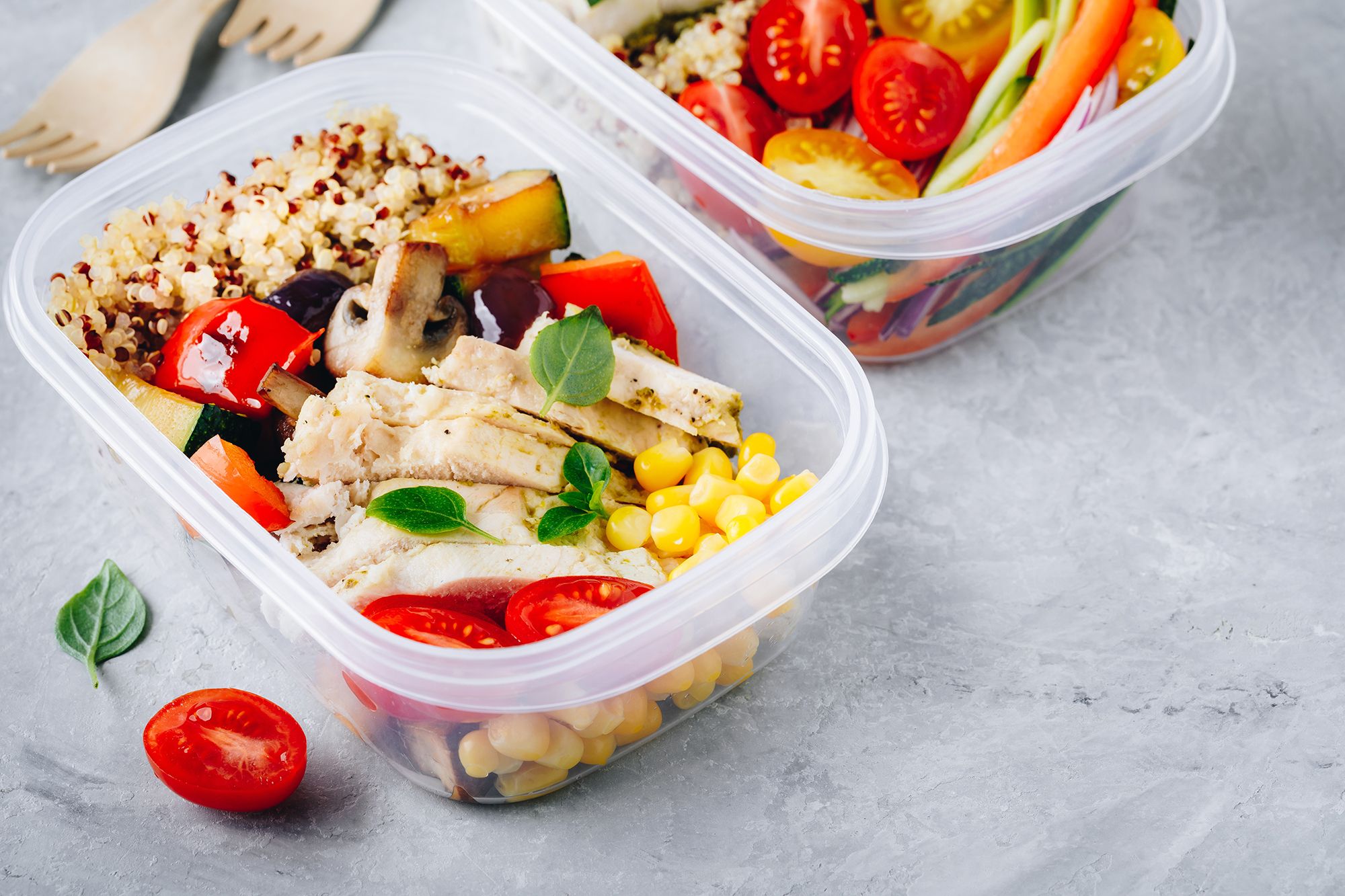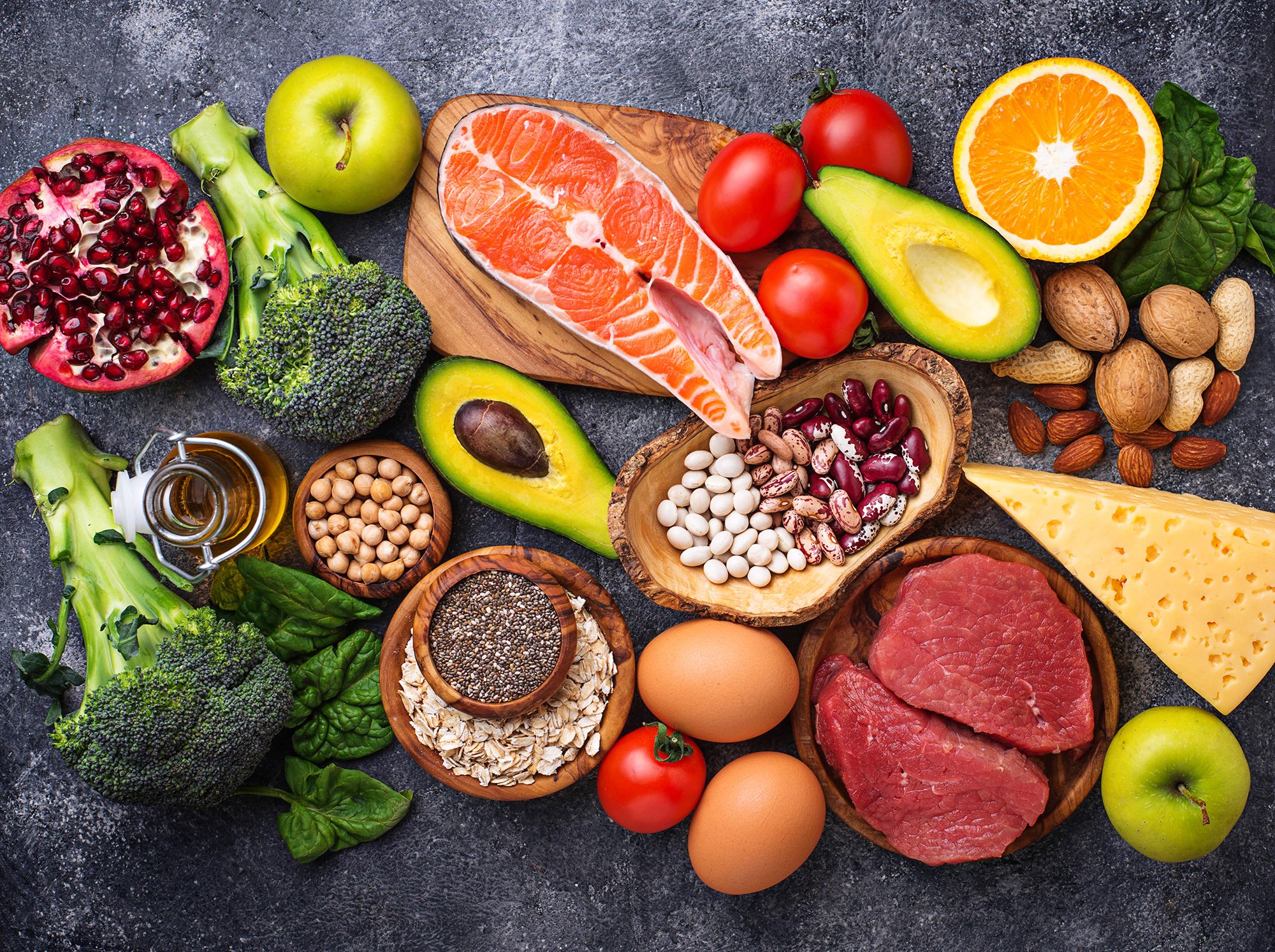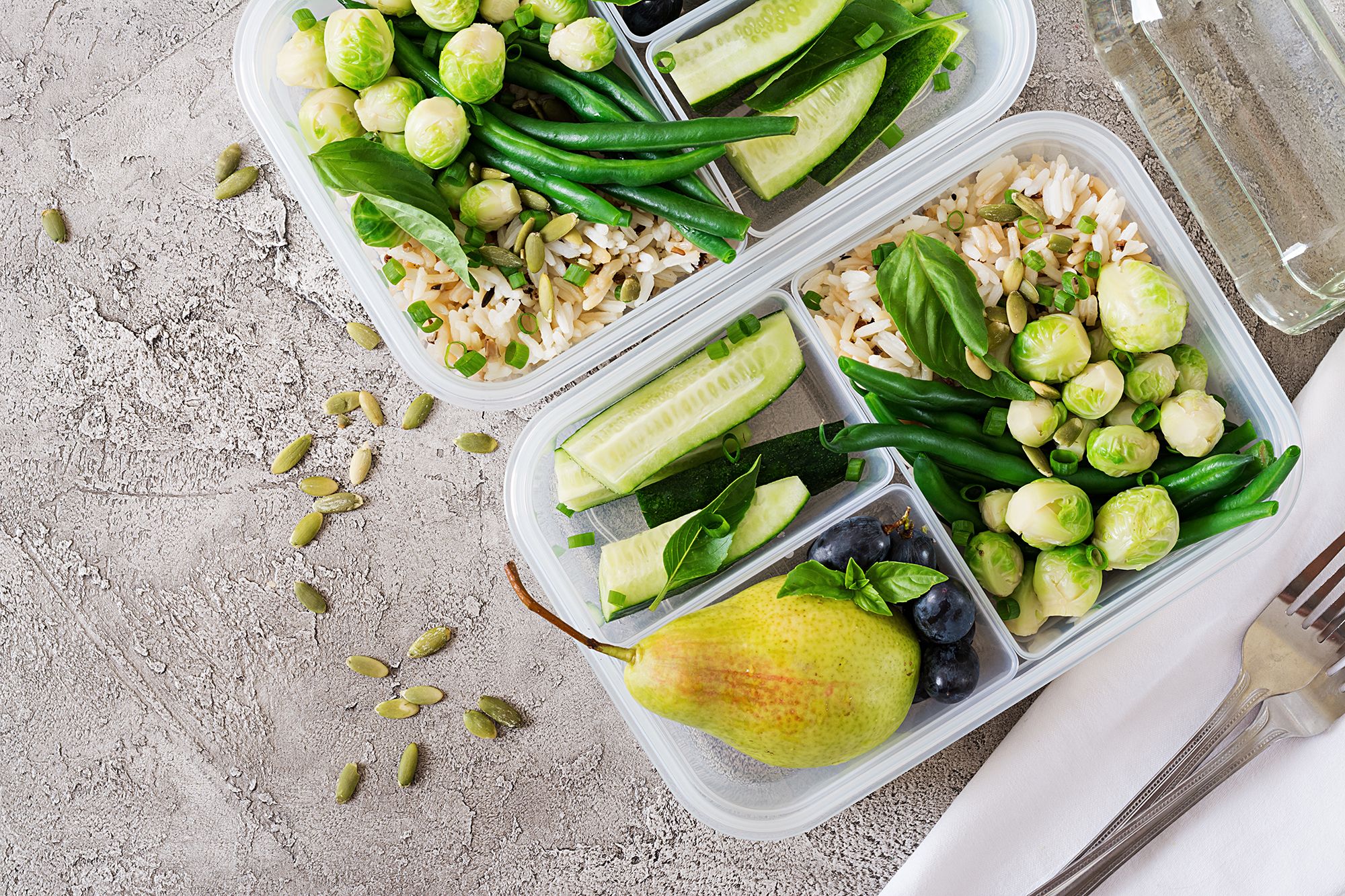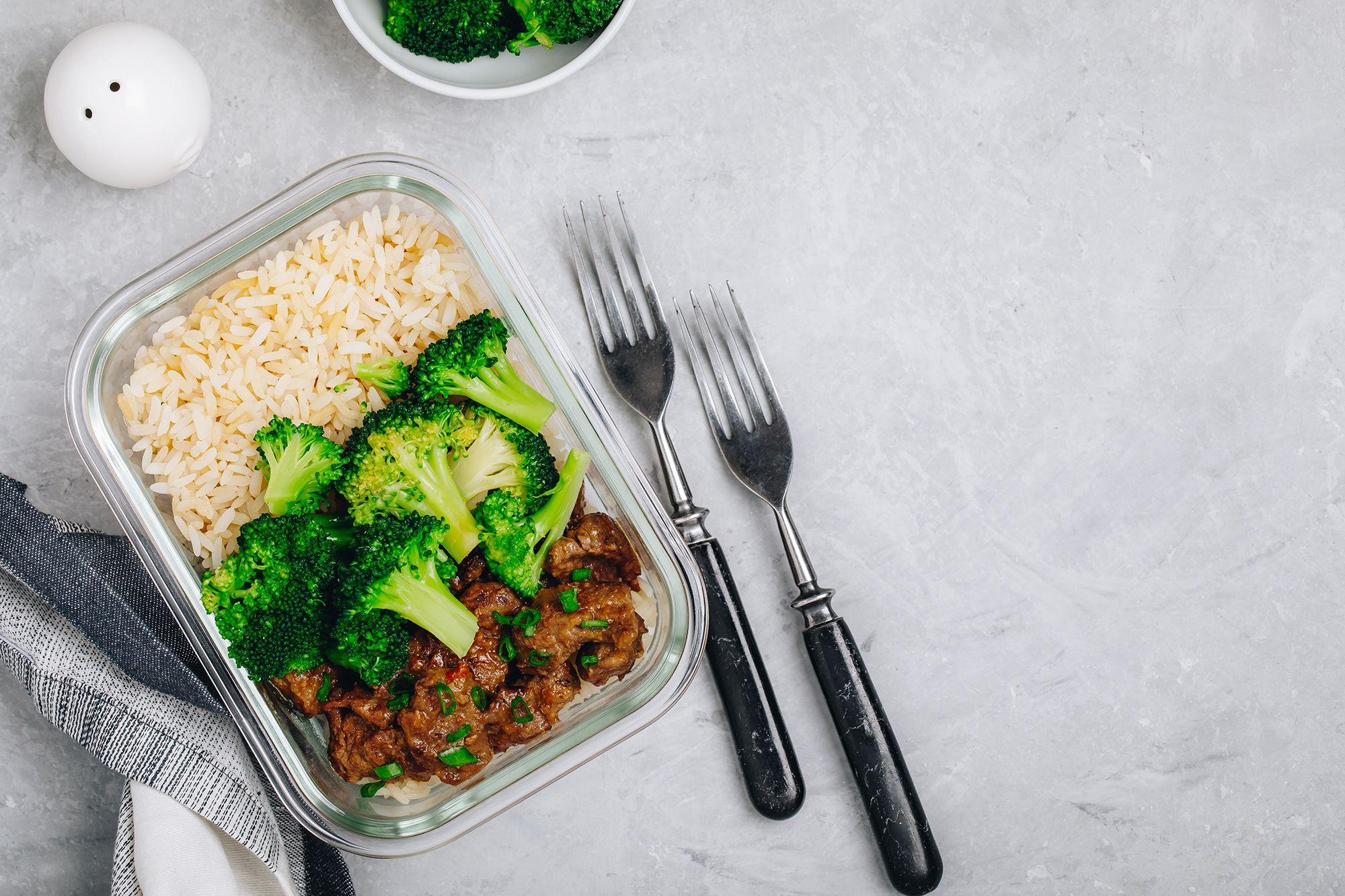In a balanced bodybuilding program, the importance of clean eating and good nutrition should not be overlooked. For many lifters, that can be easier said than done, as it can be difficult to know how to adjust your calorie and macro goals in tune with your lifting regiment and caloric needs. Let's take a look at some easy meals and meal prep for effective bodybuilding.

Bodybuilding nutrition
When it comes to bodybuilding nutrition, determining your caloric needs and macros in part depends on your goals. If your goal is to lose fat and tone, you’re going to want a slight caloric deficit. But, a note of caution: too severe a caloric deficit can change your basal metabolism—making it harder to cut weight in the future—and put you at greater risk of injury or illness. One thing to keep in mind: strength training makes it more likely you’ll keep the weight off, so don’t be in such a hurry to overdo it with the calorie deficits! If your goal is to gain bulk and mass, you’re going to want to eat more than you burn. Beyond that, your macros also depend on your goals—as well as your body’s own unique needs.
Determining your caloric and macro goals
To determine your caloric and macro goals, you first have to understand how many calories you’re currently burning. That means determining your basal metabolic rate (BMR) and total daily energy expenditure (TDEE). While there are numerous online calculators you can use, the basic principles remain the same.

Basal metabolic rate (BMR)
Your basal metabolic rate is the number of calories your body needs at rest to keep your organs functioning appropriately. As you age, your BMR decreases; increased muscle mass increases BMR; and men tend to have higher BMRs than women (in part because men tend to have more muscle).
Total daily energy expenditure (TDEE)
Including your daily activity levels gives you your total daily energy expenditure (TDEE); if your goal is to bulk up, you’ll need to take in more calories than you are expending. You should still add to your caloric intake by 10-15%—so for instance, if your maintenance diet is 3,000 calories per day, then when bulking you should aim for 3,300-3,450 calories. If your goal is to cut down, you’ll want to take in fewer calories than you are expending (again, shoot for 10-15%). In either case, watch your energy levels and weight gain or loss so you can adjust as needed. Consider using a weight lifting tracker like Bolt to help keep an eye on your lifting progress, as it can help keep you motivated. Staying on top of your macros makes it more likely you’ll stay at a healthy weight, too.
When it comes to determining your macro goals, keep a few principles in mind:
- A starting point for a bulking diet might look like this: Total Calories = 4 calories per gram of protein (with an intake of 1 gram protein per pound of body weight) + 9 calories per gram of fat (with an intake of 0.25 grams of fat per pound of body weight) + 4 calories per gram of carbohydrate.
- For a cutting diet, you’d want to cut back on your carbohydrates and fat.
You can learn more about bulking and cutting in our previous article:

Best bulking foods and snacks
For bulking, there are a few different schools of thought. Some lifters prioritize simply getting calories in to bulk up, thinking they can cut to eliminate any extra fat that might accumulate in the later cutting stage. Studies have shown, however, that building up extra fat stores as part of a bulking diet only to try and lose that fat later can adversely affect your BMR and, consequently, your ability to lose weight in the future. As a result, it’s important to effectively eat clean when bulking.

That means not overdoing it on the fats (and choosing good fats such as Omega-3 fatty acids, for instance), choosing lean proteins, and prioritizing whole-grain carbohydrates. Those are your best bets for gaining weight in the form of muscle mass without gaining excess fat.
As a result, consider the following foods a good place to start:
- Proteins: Chicken breast; fish like salmon, tilapia, and cod; pork tenderloin; sirloin steak; low-fat dairy (including yogurt, for good probiotic gut health); seeds and nuts (including almonds, chia seeds, flax seeds, sunflower seeds, and walnuts); beans and legumes (including black beans, chickpeas, kidney beans, lentils, and pinto beans)
- Fats: Lean proteins and good white fish (such as those listed above); oils like avocado oil, flaxseed oil, and olive oil
- Carbohydrates: Whole-grain breads, cereals, and crackers; oatmeal; popcorn; brown rice; starchy vegetables (corn, green beans, leafy greens, peas, potatoes); fruits
Bulking meal plans
A good bulking meal plan includes plenty of variety, focuses on foods that will give you sustained energy and includes fruits and vegetables. Consider the example day below:
- Breakfast: 2 poached eggs with salmon and avocado toast (600 calories)
- Morning snack: apple with peanut butter (200 calories) + half-cup of nuts (320 calories)
- Lunch: vegetarian bean burritos (900 calories)
- Afternoon snack: 2 oz dark chocolate (300 calories)
- Dinner: sirloin steak, white rice, and a fried egg (900 calories)
You’ll note that the meal plan includes a mix of proteins, fruits, and vegetables, as well as snacks to help ensure you have a consistent energy supply, meaning you’re less likely to crash at any point during the day.

Easy bodybuilding meals
Remember, you can always meal plan in advance. For instance, if granola with whole milk and a banana appeals to you as a breakfast option, you can portion out each day’s granola over the weekend. Similarly, you can cook chicken breasts in advance, make chili in big batches (and freeze the extra), or otherwise meal prep to help ensure you have the time you need during the workweek while still eating well.
Cheap bodybuilding meals
Eating well doesn’t have to break the bank, either. In addition to prepping meals in advance to help save time, you can also make more affordable choices.
You can often buy frozen chicken breasts in bulk. Beans and legumes are great affordable proteins, and beans and rice are a great complementary protein/starch combo. Similarly, you can affordably make your own granola, avocado toast, and protein pancakes for cheaper breakfast options.
Bodybuilding meal prep delivery services
Of course, if you don’t have time to prep bodybuilding meals in advance or prefer the added convenience, meal delivery services can help. There are quite a few options that cater specifically to bodybuilders:
- Trifecta Nutrition
- Pete’s Paleo
- Muscle Meals 2 Go
- Caveman Chefs
- ButcherBox
- Flex Pro Meals
- ProTrain
- Green Chef
- Ice Age Meals
- Fresh n' Lean
- The Good Kitchen
- SunBasket
- Factor 75
- MealPro
- Icon Meals
- Paleo on the Go
- Paleo Power Meals
References:
- https://www.ncbi.nlm.nih.gov/pubmed/24864135
- https://www.ncbi.nlm.nih.gov/books/NBK221839/
- https://www.ncbi.nlm.nih.gov/pmc/articles/PMC4334025/
- https://www.healthypeople.gov/2020/topics-objectives/topic/nutrition-and-weight-status
- https://www.hsph.harvard.edu/nutritionsource/healthy-weight/best-diet-quality-counts/

